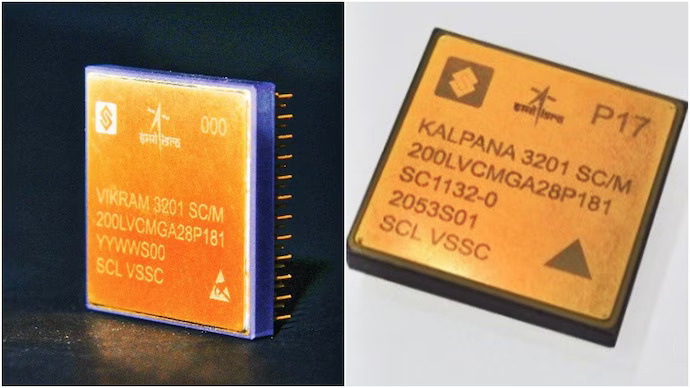ISRO Develops Indigenous 32-bit Microprocessors for Space Missions
Science & Technology SciencePosted by newadmin on 2025-03-18 08:42:33 |
Share: Facebook | Twitter | Whatsapp | Linkedin Visits: 26

The Indian Space Research Organisation (ISRO) has unveiled two advanced 32-bit microprocessors, Vikram 3201 and Kalpana 3201, marking a significant leap in India’s space technology. Developed in collaboration with the Semiconductor Laboratory (SCL) in Chandigarh, these processors are designed to withstand the extreme conditions of space and align with India’s "Make in India" initiative, emphasizing self-reliance in critical technology sectors.
The Vikram 3201 is India’s first fully indigenous 32-bit microprocessor, built using 180nm CMOS technology. It is capable of supporting floating-point computations and is compatible with high-level programming languages like Ada. This microprocessor has already undergone rigorous testing and was validated during the PSLV Orbital Experimental Module (POEM-4) mission, proving its reliability for future space missions.
On the other hand, the Kalpana 3201 is based on the SPARC V8 architecture and is a Reduced Instruction Set Computer (RISC) microprocessor. It supports open-source software, making it adaptable to a wide range of space applications.
These developments also contribute to the miniaturization of avionics systems in launch vehicles. The successful creation of these microprocessors marks a major milestone in ISRO’s quest for technological self-reliance and promises to enhance the capabilities of India’s space missions in the future.
Search
Categories
Recent News
- Big Tech's Child Safety Crisis: Australia Sounds the Alarm
- Blue Cloud Softech's $150M Edge AI Chip Venture
- Nuclear Diplomacy Revived: US and Iran Resume Talks
- Curiosity Illuminates Mars: Unveiling the Red Planet's Night Secrets
- Telangana's Cybercrime Conclave: AI Takes Centre Stage
- SEIL's Rs 20 Crore Hospital Project: A Milestone for Rural Healthcare
- India's Strategic Patience: Navigating US Trade Tensions
- Cyclone Ditwah: Andhra on High Alert as Storm Approaches
Popular News
- Navigating IPO Market Dynamics Amid Volatility and Regulatory Changes
- Massive Worldwide Microsoft Outage Disrupts Multiple Sectors
- Panjapur Bus Stand to Reshape TNSTC Routes
- తెలుగుదేశం పార్టీ - పేదరికాన్ని నిర్మూలించడంలో వాగ్దానం
- Universities Embrace Remote Learning Technologies Amidst Ongoing Pandemic